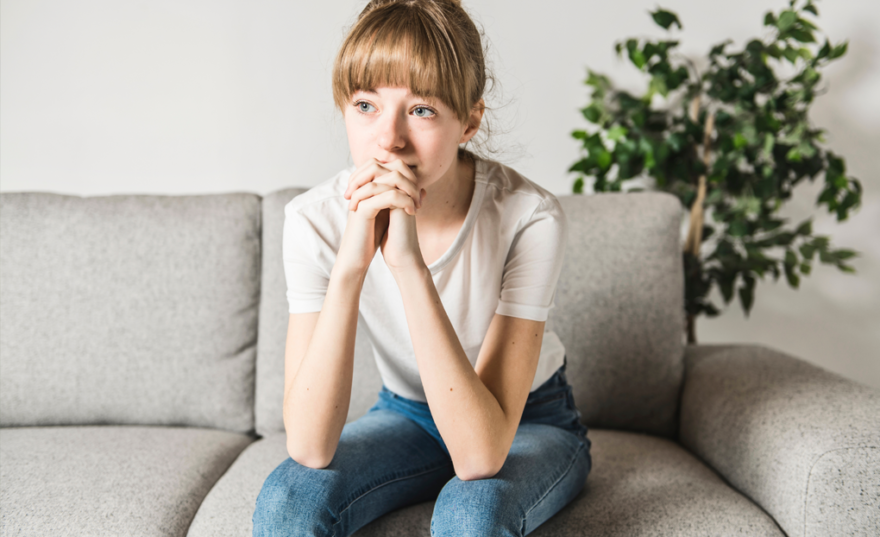Stressful life events (SLEs) are common during adolescence and can leave some individuals vulnerable to developing internalizing symptoms.1,2 Despite the recognition of this association, little is known about the underlying mechanisms. A new study published in the Journal of Child Psychology and Psychiatry has investigated whether sleep duration and regularity might link SLEs to anxiety and depression symptoms. “Due to a series of puberty-driven changes in homeostatic and circadian systems, as well as socio-cultural factors that are part of typical development, adolescents tend to start going to bed later than they did as children”, explains lead author Constanza Vidal Bustamante. “However, their wake-up time remains fixed due to early school start times, leaving most adolescents sleep deprived”.
Much research has investigated adolescent stress, sleep, and anxiety and depression symptoms via self-report over short periods. This approach can be prone to recall biases3 and fails to capture changes within individuals over time.4 To overcome this issue, the researchers followed a group of 30 girls (aged 15-17 years old) for a full year. They used Fitbits to track their sleep passively and continuously throughout the study period. The participants also completed a series of evaluations assessing SLEs and anxiety and depression symptoms once per month.
Vidal Bustamante et al. found that the participants slept less than the minimum 8 hours of sleep recommended for their age group. Although they tended to sleep longer on weekends, this was still not enough to recover the deficit. “Even if they slept longer on weekends relative to weekdays, an inconsistency in sleep duration was associated with heightened symptoms of anxiety, suggesting that changing how long they sleep from time to time is not good for adolescents’ mental health”, explains Vidal Bustamante. “Delaying school start times might help adolescents get longer and more consistent amounts of sleep, and potentially help mitigate some risk for stress-related psychopathology in adolescence”.
The researchers also noted substantial variability in SLEs, sleep behaviour, and anxiety and depression symptoms within the participants over time. “This finding underscores the need for more intensive longitudinal studies that are able to capture these changes in adolescence, and that focus on assessing deviations in sleep behaviour and symptoms of psychopathology relative to what is typical for each individual”, explains Vidal Bustamante. “We believe that such an approach overcomes the limitation of using group averages that blur out potentially important individual differences, and allows for more personalized assessments of mental and physical health”.
Referring to
Vidal Bustamante, C.M., Rodman, A.M., Dennison, M.J., Flournoy, J.C., Mair, P. & McLaughlin, K.A. (2020), Within-person fluctuations in stressful life events, sleep, and anxiety and depression symptoms during adolescence: a multiwave prospective study. J. Child Psychol. Psychiatr. doi: 10.111/jcpp.13234.
References
1Grant, K.E. et al. (2003), Stressors and child and adolescent psychopathology: Moving from markers to mechanisms of risk. Psychol. Bull. 129: 447–46. doi: 10.1037/0033-2909.129.3.447.
2Hammen, C. (2005), Stress and depression. Annu. Rev. Clin. Psychol. 1: 293–319. doi: 10.1146/annurev.clinpsy.1.102803.143938.
3Biddle, D.J. et al. (2015), Accuracy of self-reported sleep parameters compared with actigraphy in young people with mental ill-health. Sleep Health. 1: 214–220. doi: 10.1016/j.sleh.2015.07.006.
4Becker, S.P. et al. (2017), Intraindividual variability of sleep/wake patterns in relation to child and adolescent functioning: A systematic review. Sleep Med. Rev. 34: 94–121. doi: 10.1016/j.smrv.2016.07.004.


